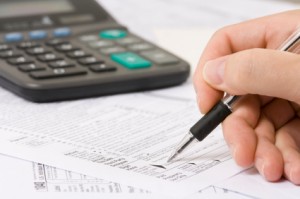 Perhaps you are a small business owner. Your corporate year end coincides with the end of the year. There are some things you can do before year end to save on tax before the new year. Small Business Tax Savings can be an important part of your revenue stream.
Perhaps you are a small business owner. Your corporate year end coincides with the end of the year. There are some things you can do before year end to save on tax before the new year. Small Business Tax Savings can be an important part of your revenue stream.
Many small business owners find themselves busy wrapping up their fiscal year end by maximizing sales. Making sure that all shipments are on their way before year end. They could be missing out on substantial tax savings. If they fail to take advantage of opportunities their company’s income tax commitment could be high.
Small Business Tax Savings
Small business owners have some unique tax-saving strategies they can employ. These strategies should help boost their overall savings for the current tax year. For example, perhaps you’ve been mulling over the purchase of new business assets. Purchasing these assets prior to the end of your tax year could be the most advantageous time to take action from a tax perspective. Sales tax rebates, additional depreciation claims etc can be maximized if you purchase these things prior to your corporate year end.
Discuss These Issues with Your Accountants
Discuss year-end tax strategies with a financial adviser or tax professional. Many of these activities must be completed by December 31st if this is the end of your company’s tax year in order to realize tax savings.
There are a couple of areas that small business owners can focus on. However based on your specific business situation there may be additional areas that you can take advantage of. Talk to your tax accountant prior to the end of your year end
Now is the time to purchase business assets
If you’re self-employed or a small business owner, you may wish to consider accelerating the purchase of new business equipment. Or office furniture that you may have been planning to purchase in the following year. Under the tax rules, you are generally permitted to deduct, under the “half-year rule,” one half of a full year’s tax depreciation. Even if you bought it on the last day of the year. For 2012, you can then proceed to claim a full year’s depreciation. Check with your tax accountant on the depreciation rules in your country.
For computer equipment purchased before year end, you can write off 100 per cent of the cost in the year of acquisition. With no half-year rule in many cases. These rules will depend on where you live and the local tax rules that are applied.
Rethink year-end compensation
An incorporated business facing an approaching December 31 corporate year-end may wish to revisit the salary-dividend mix for 2011. It may make more sense for small business owners to pay themselves exclusively through dividends rather than salary in 2012. This precludes them from making an RRSP contribution next year as dividends are not considered “earned income”. They may be better off saving money inside their corporations rather than inside an RRSP.
Talk to your adviser about the potential tax savings advantage dividends may offer over salary. Also about the tax deferral advantage of leaving funds inside the company as opposed to paying them out immediately.
Have your corporation reimburse rewards-paid travel
Some owners use personally-earned credit card rewards points, such as Aeroplan Miles, to travel for business. Have your corporation reimburse you for the value of the travel. Your corporation can deduct the expense and it may be non-taxable to you personally.
Make sure tax-planning for your business stays a priority all year long. It’s important for small business owners to review these and other strategies with an adviser on a regular basis. Discussing your tax situation with a professional can help you ensure you’re taking advantage of all the available tax minimization strategies.